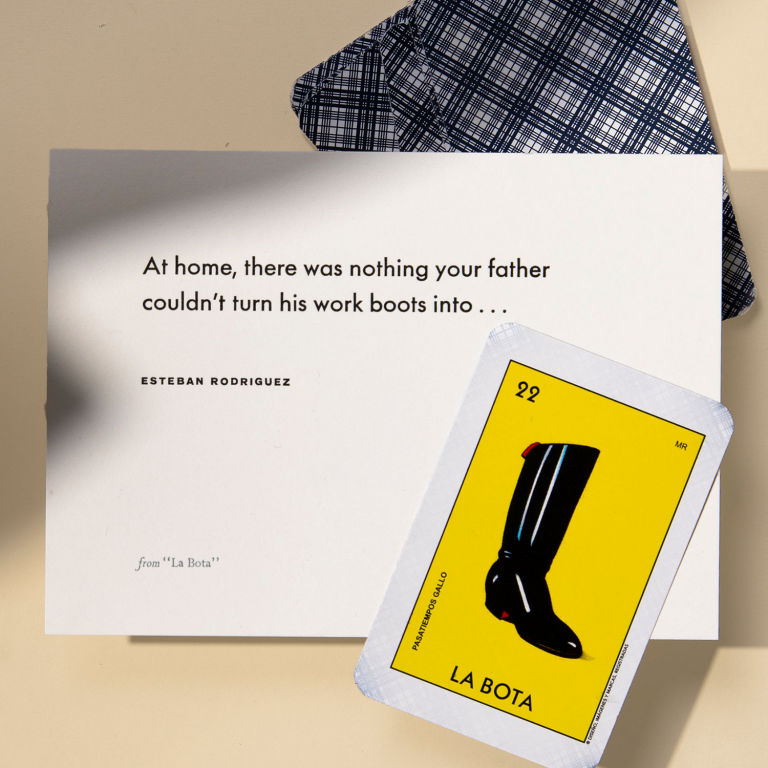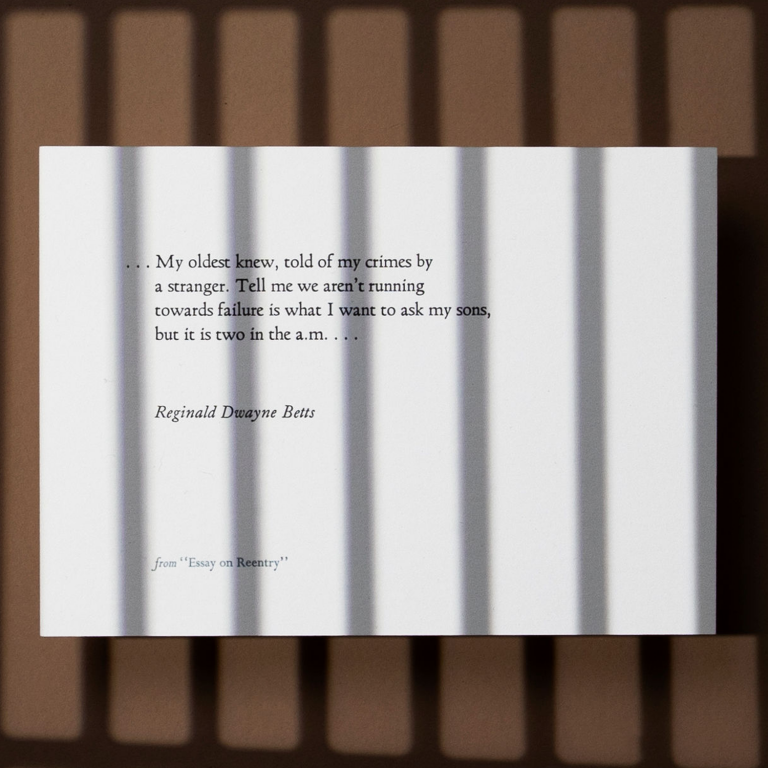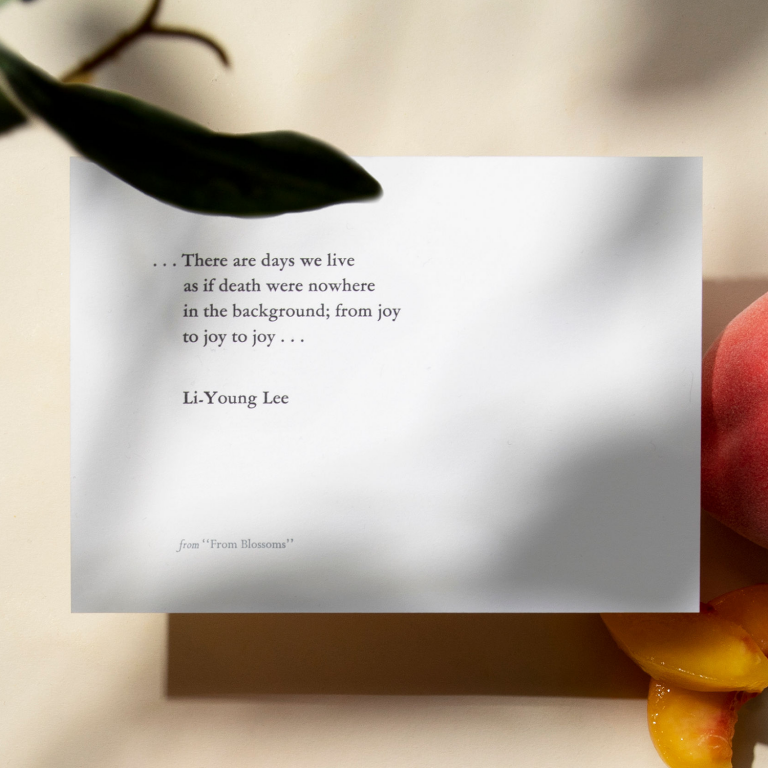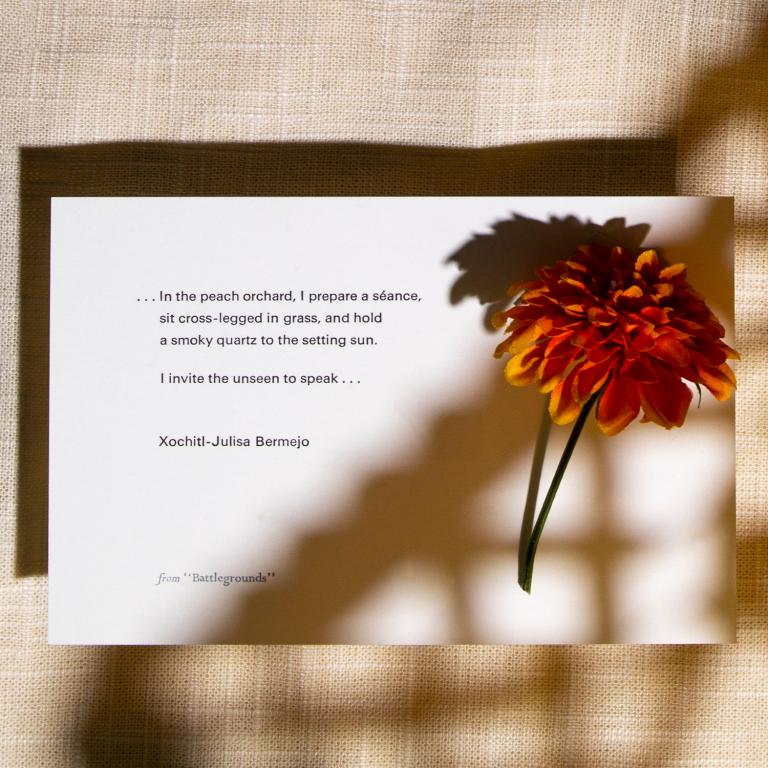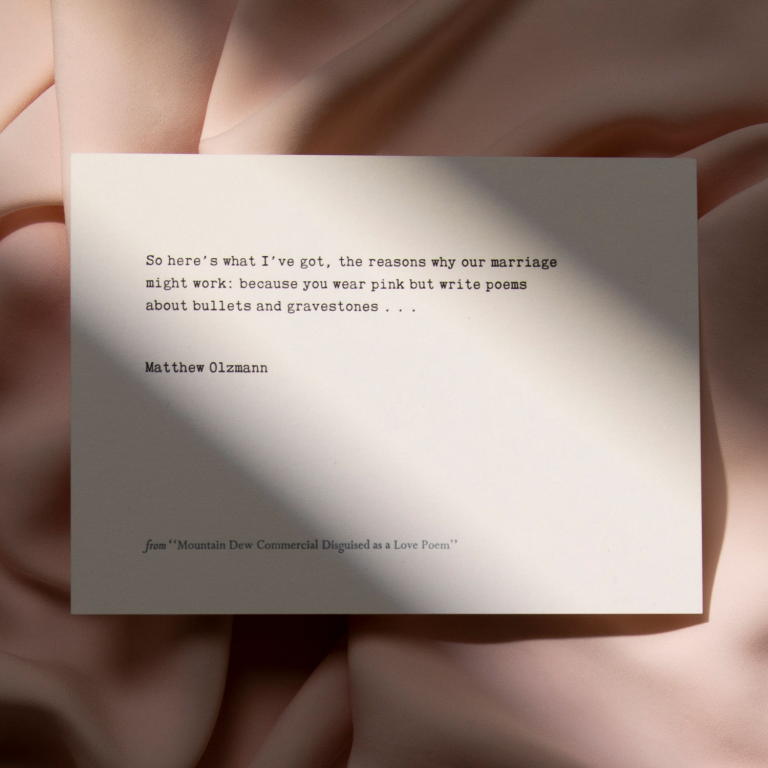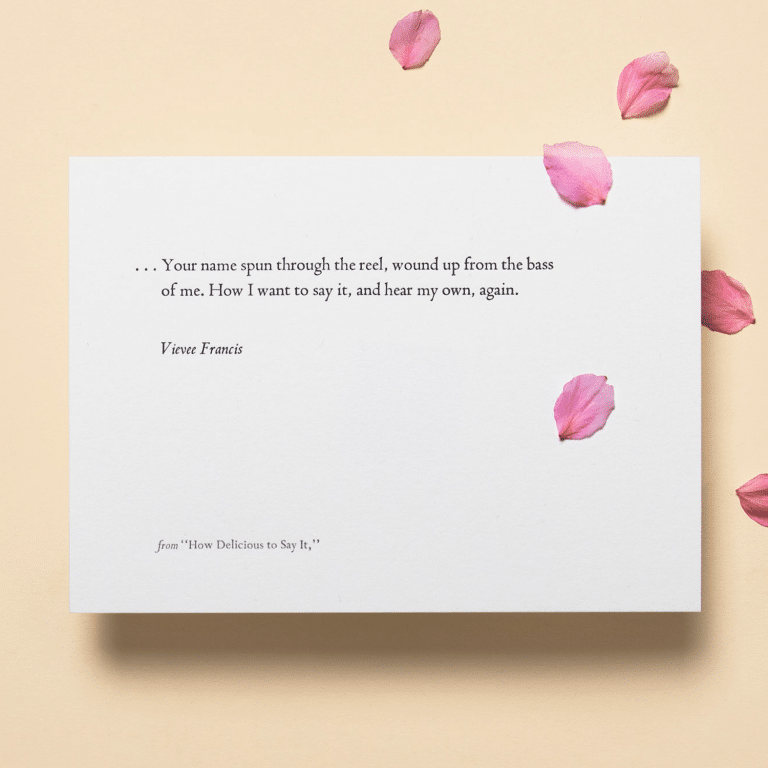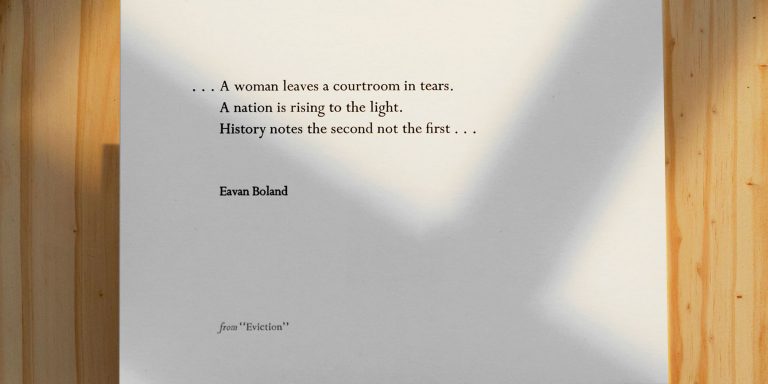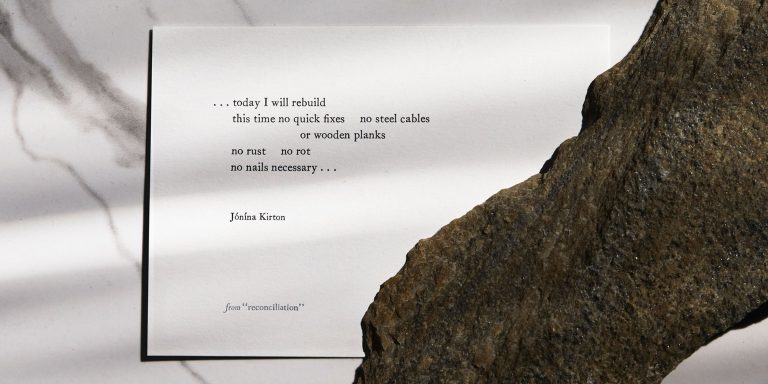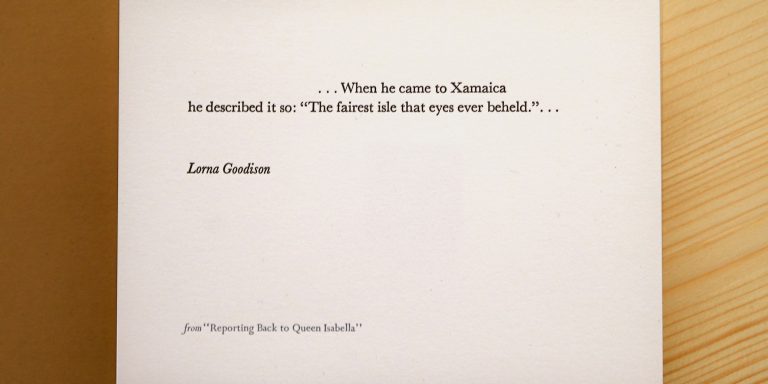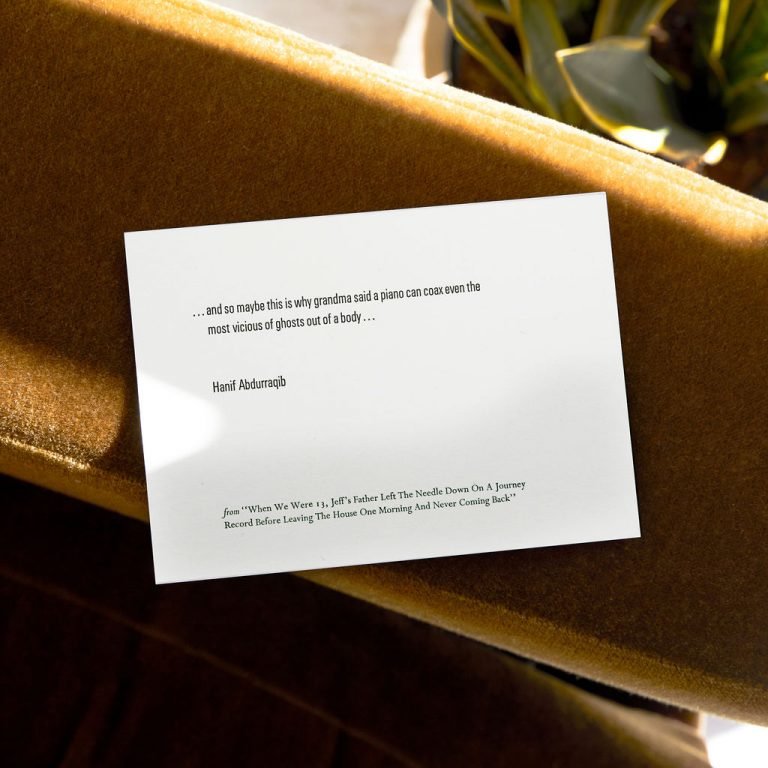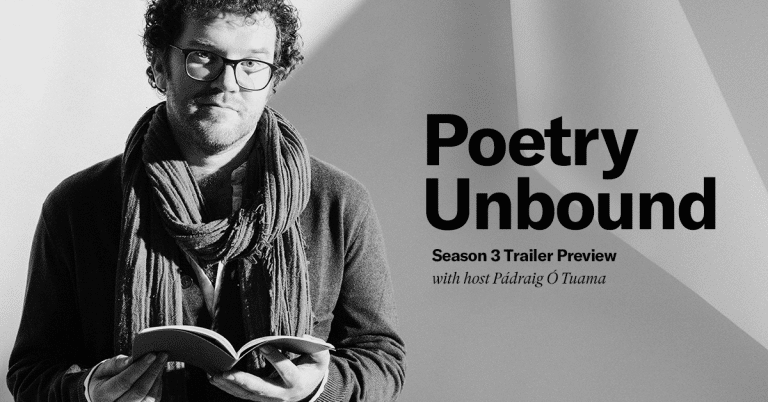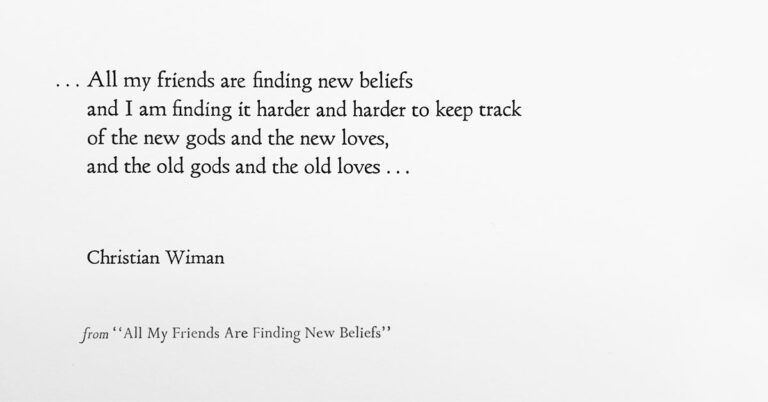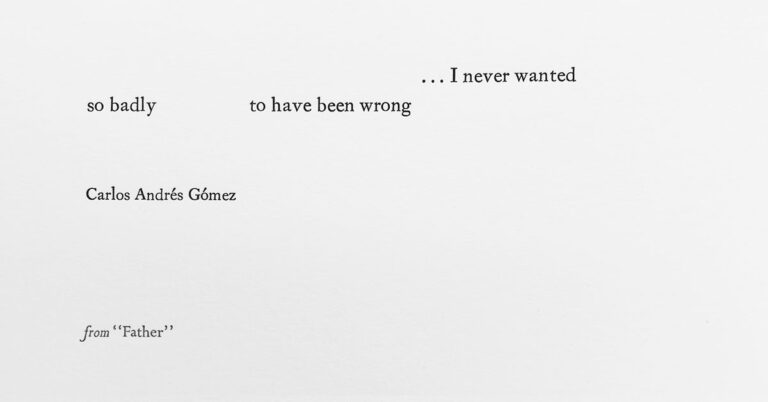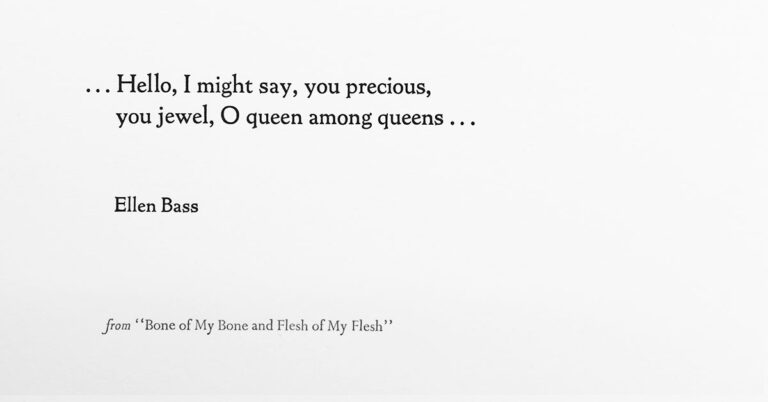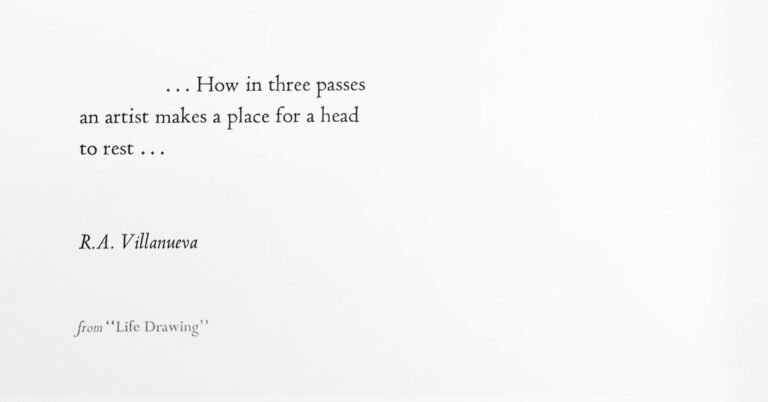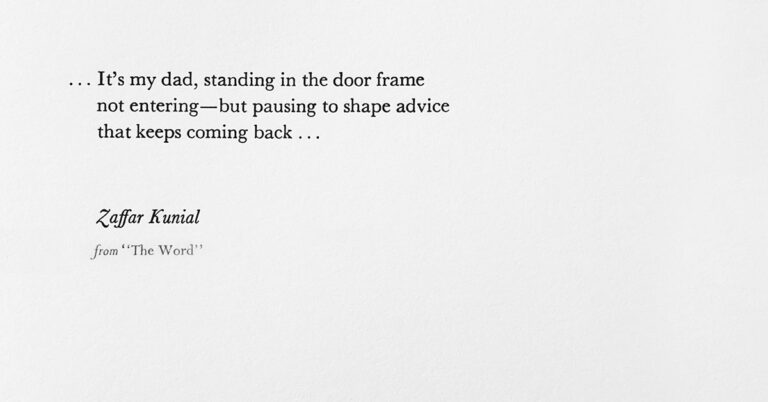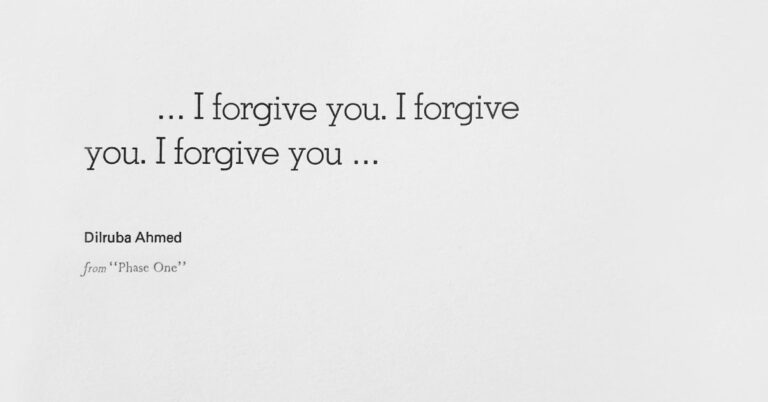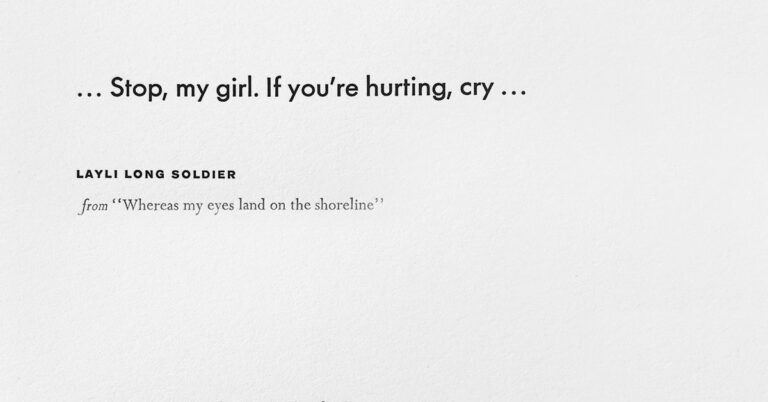May 28, 2021
Esteban Rodríguez
22 La Bota
A poet considers his father, and, particularly, his father’s boots. These boots could be a hammer, a prop, a weapon. But Esteban Rodríguez also remembers how his father — a sleepwalker — would walk outside at night in his underwear, wielding his boots, slapping them against each other in a kind of protective ritual. What spirits was his father protecting them from? What was he asserting about land and place, by standing guard, even in his dreams?
Letterpress art by Myrna Keliher.






